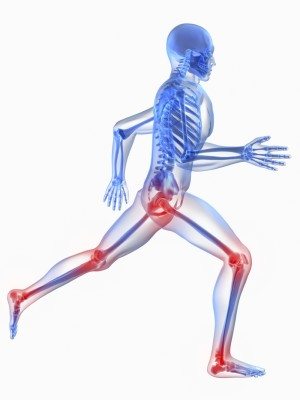Running is a great way to keep fit and healthy but it is associated with a high risk of injury. Running causes repetitive strain to the lower limb bones, muscles and tendons. If adequate recovery is not taken between sessions these structures become overloaded and breakdown.

About 25% of runners are injured at any one time and 40% of running injuries arise from the knee.
The most common running injury is Runner’s knee or Patello-femoral pain syndrome. This is where the patella (knee-cap) tracks laterally, normally due to a weak quadricep muscle and tight ilio-tibial band (ITB). Pain is felt underneath the knee-cap with squatting and climbing stairs.
Achilles tendinopathy is another common running injury. This results in the achilles tendon becoming swollen due to overload. Pain is localised to the achilles tendon and the cause is often too rapid an increase in training load or abnormal foot mechanics.
Iliotibial Band Syndrome is frequently observed in runner’s due to the repetitive loading associated with this sport. This injury is often caused by weakness in the gluteal muscles which causes overload of the ITB and pain on the outside of the knee. This condition can be successfully treated with physiotherapy.
Gluteal Tendinopathy or otherwise known as Greater trochanteric pain syndrome or Trochanteric bursitis is another injury associated with gluteal weakness and often presents as pain on the outside of the hip. It commonly refers down the outside of thigh and is worse with lying on the painful side.
The last running injury we are discussing in this post is Plantar Fasciitis. Planar fasciitis is commonly caused by poor foot mechanics where the foot rolls in excessively (pronation). This causes repetitive strain on the planar fascia and results in heel pain, medial arch pain and morning stiffness on rising.
All Physica staff are experienced in assessing and managing running injuries. We will complete a detailed examination incorporating assessment of biomechanical factors along with running technique assessment and foot mechanic assessment on Gait Scan technology. A management programme will be devised consisting of training load modification, strengthening and possible technique modification.


